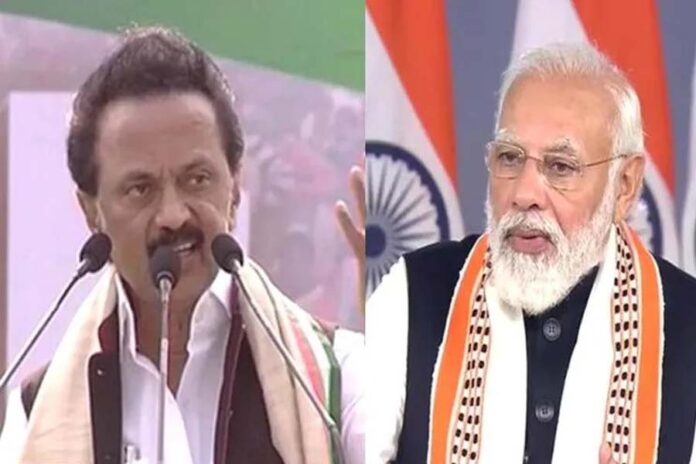New Delhi. The Modi government has recently proposed amendments to the cadre rules of Indian Administrative Service (IAS) officers. West Bengal Chief Minister Mamata Banerjee had first objected to this proposal. After Mamta, now Tamil Nadu Chief Minister Stalin has also come in opposition to this proposal. On Sunday, he wrote a letter to PM Modi objecting to this change. Jharkhand CM Hemant Soren, Rajasthan CM Ashok Gehlot, and Chhattisgarh CM Bhupesh Baghel have also written letters to Modi opposing the amendment in the rules of the IAS cadre.
Stalin said – the decision to shake the foundation of federalism
Tamil Nadu CM Stalin wrote on Twitter that I have written a letter to PM Modi opposing the amendment in the IAS Cadre Rules (1954). Along with this, I have urged other Chief Ministers to express their views on this decision which will shake the foundation of federalism.
I have written to @PMOIndia expressing my strong reservations against the proposed amendments to IAS (Cadre) Rules 1954. I also request other Chief ministers to express their opinion about this proposal which shakes the foundation of the federalism of our nation. pic.twitter.com/phnQNVjnsB
— M.K.Stalin (@mkstalin) January 23, 2022
Mamta wrote two letters, said- the administration of the states will collapse
West Bengal Chief Minister Mamata Banerjee has termed the amendment in the IAS cadre as ‘draconian’. He has written two letters to PM Modi in this regard. All these chief ministers have tried to argue that the amended rules affect federalism and will harass the state administration.
States are concerned about this amendment
Rule 6(1) was added in the IAS Cadre Rules 1954 in May 1969. Accordingly, IAS, IPS, and IFS officers are deputed from the states to the Centre. For this the consent of the states is necessary. In the new proposal, the Center will not need the consent of the states to take an officer on deputation. This will increase the control of the Center over the officers.
Four amendments have been made to this…
First Amendment: If a State Government delays the posting of a State cadre officer to the Center within a certain time, the officer shall be relieved by the Central Government from the cadre of that State.
Second Amendment: The Central Government in consultation with the State Governments shall decide the actual number of officers to be deputed to the Central Government and the State shall send the names of such eligible officers.
Third Amendment: In case of any disagreement between the Center and the State, it shall be decided by the Central Government and the State shall give effect to the decision within a stipulated time.
Fourth Amendment: In specific circumstances where the services of cadre officers are required by the Center in the public interest, the State Governments shall implement the decisions of the Center within the stipulated time.
What are the objections of the states?
The Ministry of Home Affairs and DoPT is empowered to appoint officers and take action against them. He says that if the new rules are implemented then the central government will interfere in the work of the states and will work under the pressure of the officials. It is alleged that if it is implemented, then the central governments will harass the officials to put pressure on them.
Why West Bengal’s objection in the first place?
In May 2021, there was a storm of Yas in West Bengal. Prime Minister Narendra Modi had a review meeting regarding this storm in West Bengal itself, but CM Mamta Banerjee and her Chief Secretary Alapan Bandopadhyay arrived 30 minutes late. On this, the Central Government had issued orders to transfer him to Delhi. However, Mamta did not send Bandopadhyay on deputation to the Centre. Later Bandopadhyay resigned and on the same day, Mamta was appointed as a personal advisor for three years.



